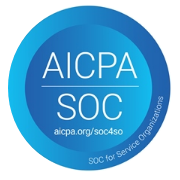Micro-credentials in continuing education refer to small, specialized certifications or badges demonstrating knowledge or skills in a specific area. They are typically shorter in duration and more focused than traditional degrees or certifications. They are designed to allow individuals to quickly gain new skills or demonstrate proficiency in a specific area. They can be earned through online courses, workshops, or other continuing education forms.
Micro-credentials are revolutionizing the way we think about continuing education. You no longer have to commit to a full degree or certification program to gain new skills or advance your career. Instead, with micro-credentials, you can focus on specific, in-demand areas of expertise and earn a badge or certification to prove it. So, whether you’re looking to break into a new field, stay current in your current role, or simply explore a new interest, micro-credentials offer a flexible, affordable, and efficient way to do it. They are a game-changer for anyone looking to boost their career prospects and stay ahead of the curve in today’s fast-paced job market.
Benefits of micro-credentials in continuing education
There are several benefits of micro-credentials in continuing education, some of which include the following:
- Career Advancement: Micro-credentials can demonstrate to employers that an individual has specific skills and knowledge in high-demand areas, making them more attractive to employers.
- Staying Current: Micro-credentials allow individuals to stay current in their field and adapt to new technologies and developments.
- Affordability: Micro-credentials are shorter and more focused, making them more affordable for individuals to pursue.
- Convenience: Micro-credentials can be earned through online or remote learning, making them more convenient for individuals to pursue.
- Flexibility: Micro-credentials can be earned through various formats, such as workshops, webinars, self-paced modules, etc., providing individuals with more options and flexibility to fit their learning style and lifestyle.
- Stackable: Micro-credentials are stackable, meaning that individuals can earn multiple micro-credentials over time to demonstrate a broader range of skills and knowledge.
- Recognition: Micro-credentials can officially recognize an individual’s knowledge, skills, and abilities.
- Increase in employability: Micro-credentials can help individuals to become more employable as it shows their capability and potential to the employer.
- Boosting Confidence: Micro-credentials can boost an individual’s confidence and motivation to learn new things and upgrade their skills.
Role of micro-credentials in continuing education
Continuous Learning: Micro-credentials provide an opportunity for continuous learning. The fast-paced nature of the job market and the constant technological changes make it imperative for individuals to stay current in their field. Micro-credentials allow individuals to gain new skills and knowledge and stay updated with the latest developments in their field, keeping them competitive in the job market.
- Diversity and Inclusion: Micro-credentials can help to promote diversity and inclusion in the workplace. By providing individuals with the opportunity to gain new skills and knowledge, micro-credentials can help to level the playing field and open up new opportunities for underrepresented groups.
- Affordability: Traditional degrees and certifications can be costly and time-consuming, making them difficult for many individuals to pursue. Micro-credentials are shorter and more focused, making them more affordable for individuals to pursue. This allows individuals to continue working while they pursue further education, reducing the financial burden of obtaining new skills and knowledge.
- The trial, no error! Micro-credentials allow individuals to try new fields, skills, or positions without committing to a full degree or certification program. This allows individuals to explore new areas of interest without the risk of making a long-term commitment or wasting time and resources.
- Flexibility and Convenience: Micro-credentials can be earned through online or remote learning, making them more convenient for individuals to pursue. This allows individuals to continue working while they pursue further education and to learn at their own pace and schedule. Micro-credentials can also be earned through various formats, such as workshops, webinars, self-paced modules, etc., providing individuals with more options and flexibility to fit their learning style and lifestyle.
How can you incorporate micro-credentials?
There are several ways that an association can incorporate micro-credentials into its offerings:
- Develop micro-credentials: Develop micro-credentials specific to the industry or field that the association represents. This can be done by identifying the skills and knowledge in high demand and developing a program that teaches those skills.
- Partner with organizations: Partner with other organizations or educational institutions with experience developing and delivering micro-credentials. This can help ensure that the micro-credentials are high quality and relevant to the industry.
- Offer online courses: Offer online courses, webinars, or self-paced modules that can be completed to earn micro-credentials. This can make micro-credentials more accessible and convenient for individuals to pursue.
- Utilize existing resources: Utilize existing resources such as conference sessions, webinars, and workshops to develop micro-credentials. This can help to maximize the value of these resources and provide more opportunities for individuals to earn micro-credentials.
- Promote the micro-credentials: Promote the micro-credentials to members and other individuals in the industry through email campaigns, social media, and other marketing efforts. This can help to raise awareness about micro-credentials and increase participation.
- Incorporate into member benefits: Incorporate micro-credentials into member benefits. This can help increase the value of membership and encourage members to pursue micro-credentials.
- Measure impact: Measure the impact of the micro-credentials by tracking participation, completion rates, and participant feedback. Use this data to improve the micro-credentials offering and make them more effective.
Overall, incorporating micro-credentials into an association’s offerings can provide value to members and help ensure that the association provides relevant and high-quality education and training.
Final Thoughts:
Incorporating micro-credentials into an association’s offerings can provide value to members and help to ensure that the association is providing relevant and high-quality education and training.













